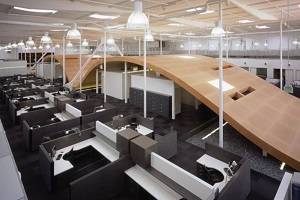March 31, 2014
HR has the most ‘can’t do’ attitude in the workplace finds poll
 Human resources people are obstructive and most likely to reject reasonable requests in the workplace, finds a new poll. Almost 18 per cent of individuals polled by conference call provider Powwownow voted the HR department as the most difficult to work with; almost double that of Finance/Accounting, the next most maligned department.Why some members of staff are so uncooperative was interpreted by respondents as due to illusions of grandeur (68%), attempts to retain power and hold others back (67%) and confusion/lack of training/lack of confidence (40%). Unhelpfulness does not go unpunished it seems as the majority of respondents (53%) thought that unproductive or obstructive employees are more prone to bullying in the workplace. Those who encounter such unhelpfulness admitted to being driven to consider screaming out of sheer frustration (40%) or even seek new employment (36%) rather than speaking with their superior (30%) about an obstructive colleague. (more…)
Human resources people are obstructive and most likely to reject reasonable requests in the workplace, finds a new poll. Almost 18 per cent of individuals polled by conference call provider Powwownow voted the HR department as the most difficult to work with; almost double that of Finance/Accounting, the next most maligned department.Why some members of staff are so uncooperative was interpreted by respondents as due to illusions of grandeur (68%), attempts to retain power and hold others back (67%) and confusion/lack of training/lack of confidence (40%). Unhelpfulness does not go unpunished it seems as the majority of respondents (53%) thought that unproductive or obstructive employees are more prone to bullying in the workplace. Those who encounter such unhelpfulness admitted to being driven to consider screaming out of sheer frustration (40%) or even seek new employment (36%) rather than speaking with their superior (30%) about an obstructive colleague. (more…)


























July 16, 2014
Three ways in which politicians display their ignorance of the workplace
by Mark Eltringham • Comment, Facilities management, Flexible working, Technology, Workplace, Workplace design
(more…)